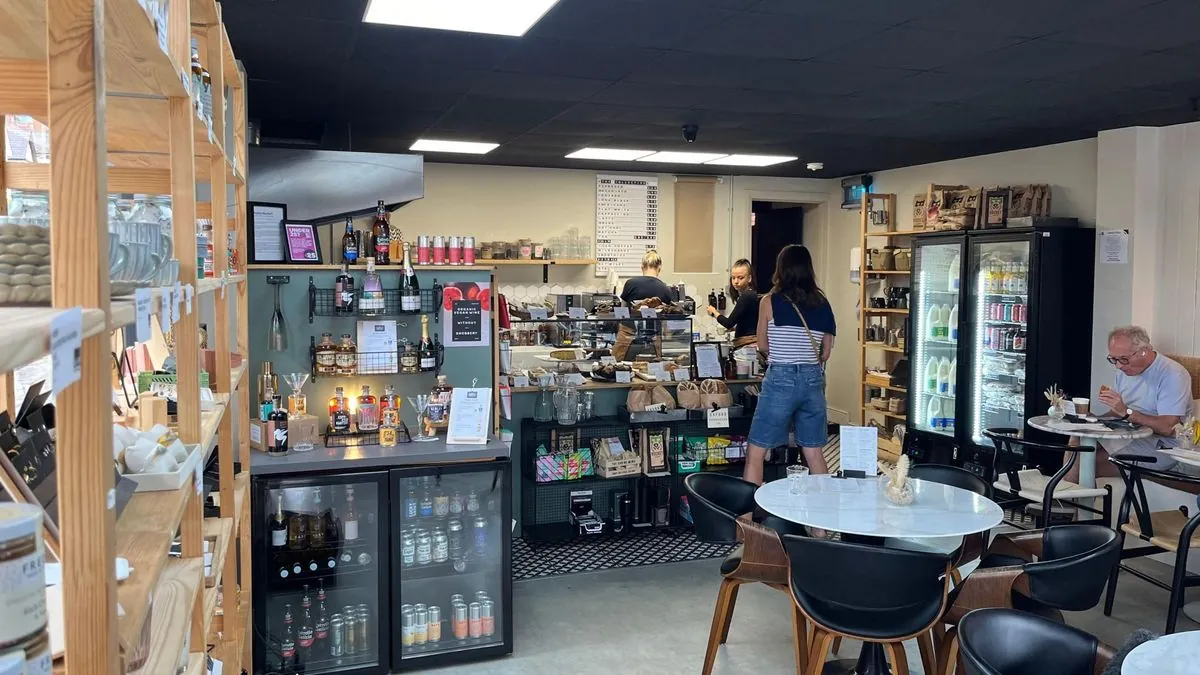UK Cafes Grapple with Laptop Users: Balancing Business and Atmosphere
Independent cafes in the UK are implementing strategies to manage the influx of laptop users, balancing the need for turnover with maintaining a welcoming atmosphere. This trend highlights the challenges of adapting to changing work habits.

In recent years, UK cafes have been facing a growing challenge: managing the influx of laptop users who treat their establishments as free coworking spaces. This trend has led to a delicate balancing act for cafe owners, particularly independent businesses, as they strive to maintain a welcoming atmosphere while ensuring profitability.
Adelina Budakova, owner of Barista On The Other Side in north London, has experienced this firsthand. Her cafe, which has been operating for two decades, initially welcomed laptop users but soon found the atmosphere shifting. "We started to lose regular customers because the atmosphere inside was becoming like an office," Budakova explains. This experience is not unique, as the UK has seen a 37% increase in remote work between 2019 and 2023.
To address this issue, many cafes are implementing new policies. Milk & Bean in Newbury and The Collective in Caversham have recently imposed time limits on laptop use. These measures aim to strike a balance between accommodating remote workers and maintaining a vibrant cafe environment. The challenge is particularly acute for independent coffee shops, which make up about 30% of the UK's £4.4 billion coffee shop market.
Cafe owners report that laptop users often spend less and occupy tables for longer periods, impacting turnover. Chris Chaplin of Milk & Bean notes, "It brings the vibe of the place down with people on laptops." This sentiment echoes across the industry, with some cafes like Common Ground in London implementing a complete ban on laptops and tablets since October 2020.

The rise of the "coffice" culture in the 2010s, coupled with widespread Wi-Fi availability in cafes by 2010, has contributed to this phenomenon. However, the average coffee shop profit margin of 7-10% leaves little room for accommodating long-stay, low-spending customers.
Larger chains like Gail's seem better equipped to absorb the impact of laptop users. Aminur Rahman, a Gail's employee, states, "We treat them just like a regular customer. I'm not sure about other companies but, for example, if they don't buy anything we don't get annoyed."
For independent cafes, the struggle continues. Budakova has implemented a compromise, designating specific areas for laptop use with time limits. "Can you see the atmosphere right now? It's nice," she says, gesturing to a mix of working and socializing customers.
As the UK coffee culture evolves, with 80% of adults visiting coffee shops regularly, finding a balance between accommodating changing work habits and preserving the social essence of cafes remains a pressing challenge for owners across the country.
"We were being bombarded by them. They are not educated whatsoever that this is a business."
This ongoing issue reflects the broader changes in work culture and the role of public spaces in the post-pandemic era. As cafes continue to adapt, the future of the British coffee shop experience hangs in the balance, with owners and customers alike navigating this new landscape.


































